Philip Shane Ardern is a New Zealand politician. He is a member of the National Party and represented the electorate of Taranaki-King Country from 1998 to 2014.

Brian Raymond Tamaki, is a Māori fundamentalist Christian religious leader and far-right political activist and politician from New Zealand. He is the leader of Destiny Church, a pentecostal Christian organisation which advocates strict adherence to fundamentalist biblical morality. Tamaki has been involved with various fringe political parties and movements, and since 2022 he has led the Freedoms New Zealand party.

Dame Jacinda Kate Laurell Ardern is a New Zealand former politician who served as the 40th prime minister of New Zealand and leader of the Labour Party from 2017 to 2023. She was a Labour member of Parliament (MP) as a list MP from 2008 to 2017, and for Mount Albert from 2017 to 2023.
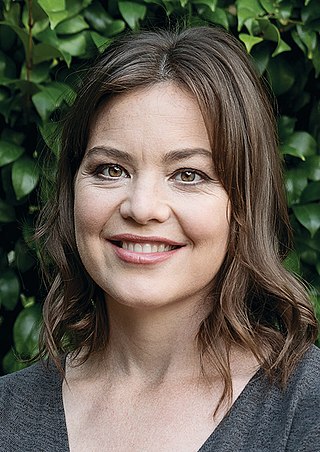
Julie Anne Genter is an American-born New Zealand politician who is a member of the House of Representatives representing the Green Party of Aotearoa New Zealand. Genter was elected to each Parliament from 2011 to 2023 on the party lists, before being elected as the Member of Parliament for the Rongotai electorate in the 2023 election. She served as the Minister for Women, Associate Minister for Health and Associate Minister for Transport during the first term of the Sixth Labour Government. She holds dual citizenship of New Zealand and the United States.
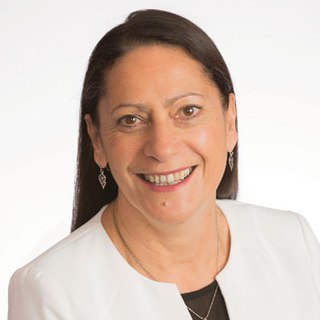
Munokoa Poto Williams is a New Zealand Labour Party politician and a member of Parliament. She was elected in a 2013 by-election and served as Minister of Conservation and Minister for Disability Issues in the Sixth Labour Government.
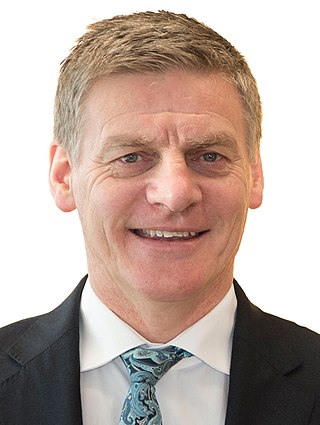
The 2017 New Zealand general election took place on Saturday 23 September 2017 to determine the membership of the 52nd New Zealand Parliament. The previous parliament was elected on 20 September 2014 and was officially dissolved on 22 August 2017. Voters elected 120 members to the House of Representatives under New Zealand's mixed-member proportional (MMP) voting system, a proportional representation system in which 71 members were elected from single-member electorates and 49 members were elected from closed party lists. Around 3.57 million people were registered to vote in the election, with 2.63 million (79.8%) turning out. Advance voting proved popular, with 1.24 million votes cast before election day, more than the previous two elections combined.
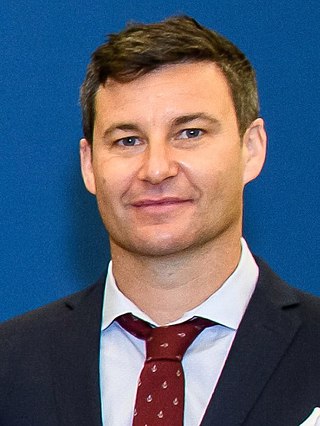
Clarke Timothy Gayford is a New Zealand radio and television broadcaster, presenter of the fishing documentary show Fish of the Day. He is the fiancé of Jacinda Ardern, who was prime minister of New Zealand from October 2017 to January 2023.

Kieran Michael McAnulty is a New Zealand Labour Party politician. First elected to parliament in 2017, he was a Cabinet minister and the Member of Parliament for the Wairarapa electorate in the 53rd Parliament. He was formerly the Chief Government Whip, Minister of Local Government, Minister of Local Government and Minister for Emergency Management, among other portfolios.

Harete Makere Hipango is a New Zealand politician. She was a member of parliament in the House of Representatives for the National Party and sat on the Māori Affairs Committee.

The Sixth Labour Government governed New Zealand from 26 October 2017 to 27 November 2023. It was headed by Chris Hipkins, the Labour Party leader and prime minister.
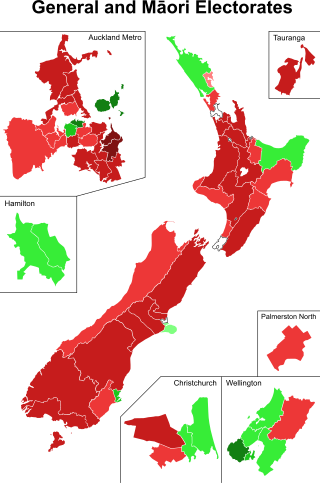
The 2020 New Zealand cannabis referendum was a non-binding referendum held on 17 October 2020 in conjunction with the 2020 general election and a euthanasia referendum, on the question of whether to legalise the sale, use, possession and production of recreational cannabis. It was rejected by New Zealand voters. The form of the referendum was a vote for or against the proposed "Cannabis Legalisation and Control Bill". Official results were released by the Electoral Commission on 6 November 2020 with 50.7% of voters opposing the legalisation and 48.4% in support.
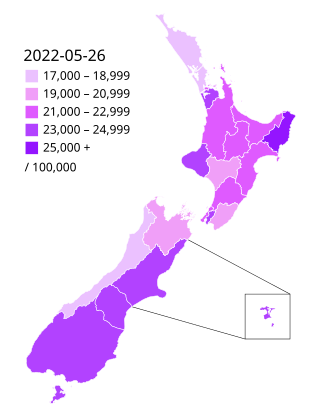
The COVID-19 pandemic in New Zealand was part of the pandemic of coronavirus disease 2019 caused by severe acute respiratory syndrome coronavirus 2. The first case of the disease in New Zealand was reported on 28 February 2020. The country recorded over 2,274,370 cases. Over 3,000 people died as a result of the pandemic, with cases recorded in all twenty district health board (DHB) areas. The pandemic first peaked in early April 2020, with 89 new cases recorded per day and 929 active cases. Cases peaked again in October 2021 with 134 new cases reported on 22 October.
There have been several COVID-19 protests in New Zealand held since 2020, where people protested the government's response to the COVID-19 pandemic in New Zealand, in particular the lockdown measures in place in March–May 2020, August 2020, and August–November 2021 and the later vaccine mandates. Most politicians both within and outside of Government and the vast majority of people have condemned these protests and view them as grandstanding by the organisers, and fear they may have spread the virus.
Mark Stuart Cameron is a New Zealand politician and dairy farmer. He has been a member of Parliament for ACT New Zealand since the 2020 general election.
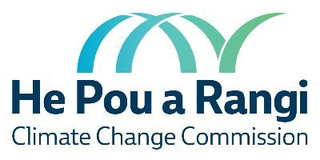
The Climate Change Commission is an independent Crown entity that advises the New Zealand Government on climate change policy and monitors the government's progress towards New Zealand's emission reduction goals within the framework of the Climate Change Response Amendment Act. The Commission was established as the successor to the Interim Climate Change Committee following the passage of the Zero Carbon Act in November 2019.
Groundswell NZ is a farming advocacy group in New Zealand that was formed to oppose the New Zealand Government's National Policy Statement on Freshwater. The group has also sought to oppose or revise freshwater, indigenous biodiversity, climate change, pastoral land reform policies, and the Three Waters reform programme affecting farmers and rural communities On 16 July 2021, Groundswell NZ staged a nationwide Howl of a Protest campaign in between 47 and 57 cities and towns throughout New Zealand to protest what they regarded as "increasing Government interference, unworkable regulations, and unjustified costs" on the rural sector. On 21 November 2021, Groundswell NZ held a second series of nationwide protests known as the Mother of All Protests.
The Water Services Reform Programme is a public infrastructure restructuring programme launched by the Sixth Labour Government to centralise the management of water supply and sanitation in New Zealand. It originally proposed shifting control of stormwater, drinking water and wastewater management from the country's 67 local councils to several new publicly-owned regional entities by July 2024. Details of the proposed reforms were announced in October 2021. The Three Waters reforms were criticised by several mayors and the opposition National and ACT parties.
The Mother of All Protests was a series of nationwide protests in New Zealand on 21 November 2021, organised by the farming advocacy group Groundswell NZ to oppose the government's rural sector regulations and policies. Protests took place in 70 cities and towns across New Zealand. Due to controversy around racist signage in the previous Howl of a Protest campaign, Groundswell issued a list of approved messages for participants.

Counterspin Media is a far-right, anti-vaccine, and conspiracy theorist New Zealand online media platform that was founded in May 2021.

Voices for Freedom (VFF) is an anti-vaccine advocacy group in New Zealand that formed in December 2020 to oppose the New Zealand Government's COVID-19 mitigation policies and vaccination rollout. The organisation is founded and led by food blogger and former Advance New Zealand candidate Claire Deeks, Libby Jonson and Alia Bland. Voices for Freedom has been criticised by NZ Skeptics, The Spinoff editor Madeleine Chapman, and "FACT Aotearoa" for spreading misinformation about COVID-19 and vaccinations.
















